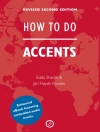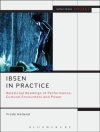Is Hitchcock a superficial, though brilliant, entertainer or a moralist? Do his films celebrate the ideal of romantic love or subvert it? In a new interpretation of the director’s work, Richard Allen argues that Hitchcock orchestrates the narrative and stylistic idioms of popular cinema to at once celebrate and subvert the ideal of romance and to forge a distinctive worldview-the amoral outlook of the romantic ironist or aesthete. He describes in detail how Hitchcock’s characteristic tone is achieved through a titillating combination of suspense and black humor that subverts the moral framework of the romantic thriller, and a meticulous approach to visual style that articulates the lure of human perversity even as the ideal of romance is being deliriously affirmed. Discussing more than thirty films from the director’s English and American periods, Allen explores the filmmaker’s adoption of the idioms of late romanticism, his orchestration of narrative point of view and suspense, and his distinctive visual strategies of aestheticism and expressionism and surrealism.
Table des matières
Preface
Acknowledgments
Part I: Narrative Form
1 Romantic Irony
2 Suspense
3 Knowledge and Sexual Difference
Part II: Visual Style
4 Sexuality and Style
5 Expressionism
6 Color Design
Conclusion
Notes
Index
A propos de l’auteur
Richard Allen is professor and chair of cinema studies at New York University. He is the author of numerous essays on Hitchcock, coeditor of two anthologies, Alfred Hitchcock: Centenary Essays and Hitchcock: Past and Future, and with Sidney Gottlieb he edits the Hitchcock Annual for Wallflower Press. Richard Allen is Associate Professor of Cinema Studies at New York University. He is the author of Projecting Illusion (Cambridge, 1995) and co-editor of four anthologies Film Theory and Philosophy (Oxford, 1997), Hitchcock: Centenary Essays (BFI 1999), Wittgenstein, Theory and The Arts (Routledge, 2001), Camera Obscura/Camera Lucida: Essays in Honor of Annette Michelson (Amsterdam, 2003). He is also editor (with Sid Gottlieb) of the Hitchcock Annual, a journal of Hitchcock Studies.












